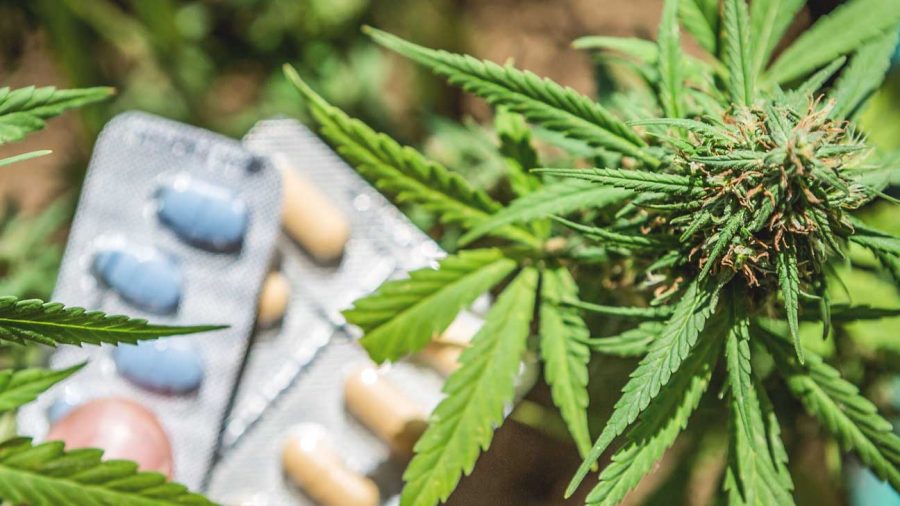Study shows 40 percent of patients with chronic pain swap opioids with cannabis
A new survey of 525 chronic pain patients found that 40.4 percent of respondents succeeded in using medical cannabis to replace their opioid medications.
The research, titled, “A Survey on the Effect That Medical Cannabis Has on Prescription Opioid Medication Usage for the Treatment of Chronic Pain at Three Medical Cannabis Practice Sites,” was published in San Francisco, California-based open-access medical journal Cureus on December 2, 2020.
Data was gleaned from a number of surveys carried out through Integr8 Health, in addition to three associated cannabis medical facilities located in Maine and Massachusetts.
“Patients in this study reported that cannabis was a useful adjunct and substitute for prescription opioids in treating their chronic pain and had the added benefit of improving the ability to function and quality of life,” wrote the study’s authors — Medical Director of Integr8, Dustin Sulak, and member of the Society of Cannabis Clinicians Kevin M. Takakuwa.
Although 1,181 patients responded to the survey in total, 656 were prohibited from participating for failing to meet the definition of chronic pain and/or failing to use the plant in combination with opioid treatments. More than half of respondents were male (55.8 percent), one-third were aged 46-55 and a quarter were aged 56-65.
Almost half of surveyed chronic pain patients decreased reliance on opioids after using cannabis
The findings of this survey on cannabis for chronic pain suggest that the plant could serve as a welcome alternative to opiate-based medications, which are responsible for tens of thousands of deaths every year in the U.S. alone.
Aside from those who completely stopped using opioids to relieve the symptoms of pain, an additional 45.2 percent said that they felt less reliant on opioids after using cannabis; 13.3 percent reported no change in cannabis consumption; 1.1 percent say their opioid use increased.
Interestingly, 63 percent of respondents said they were not keen on using opioid-based medications after using cannabis as a substitute, thus indicating the plant’s therapeutic power — a theory further stimulated by the fact that 80 percent of surveyed individuals reported enhanced quality of life while using weed.
Furthermore, almost 48.2 percent reported experiencing a 40-100 percent pain decrease when using both cannabis and opioids, whereas 8.6 percent had no change in their substance use and 2.6 percent said their pain worsened.
Indica cannabis strains prove popular among chronic pain patients
In separate research, indica cannabis strains – famed for their couch-locking effects – appear to win in the popularity stakes among patients who suffer from chronic pain. An online survey, which was published in the Journal of Alternative and Complementary Medicine, revealed that participants favor indica strains for pain management.
Specifically, indica strains were most effective at treating spasticity, joint pain, neuropathy and non-migraine headaches. Indica strains were also preferred for inducing feelings of sedation and promoting a good night’s sleep. Conversely, the survey respondents who chose sativa strains – known for producing cerebral effects – praised this type of cannabis for boosting energy levels and enhancing mood.
Despite the clear benefits of using cannabis to relieve pain, the U.S. Food and Drug Administration (FDA) has only, so far, approved the use of cannabis as a treatment for two rare types of epilepsy — Lennox-Gastaut syndrome and Dravet syndrome. Approved in June 2018, Epidiolex is enriched with a purified form of CBD.








